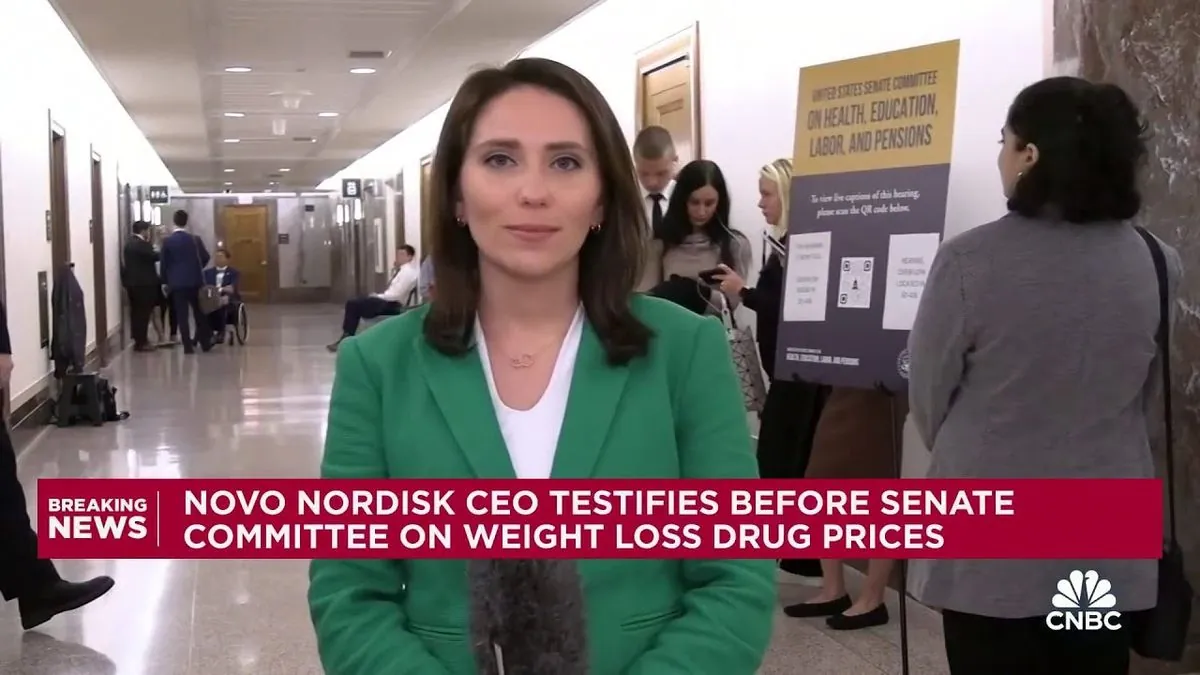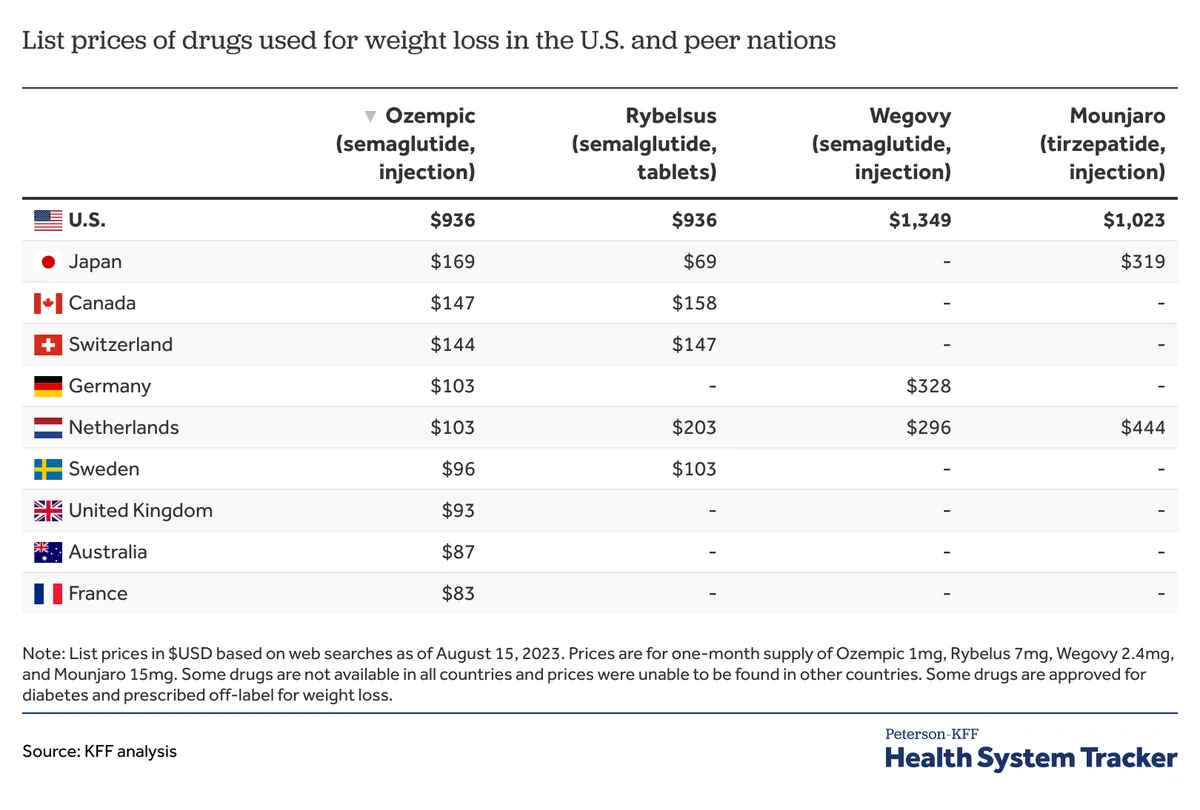Novo Nordisk CEO Defends Drug Pricing Amid Senate Scrutiny
Novo Nordisk's CEO faced tough questions from senators about high US drug prices. He cited complex healthcare system and rebates, while senators pushed for lower list prices.

On Tuesday, September 24, 2024, Lars Fruergaard Jørgensen, CEO of Novo Nordisk, appeared before the Senate health committee to address concerns about the pricing of the company's popular diabetes and weight-loss medications in the United States. The hearing highlighted the ongoing debate surrounding pharmaceutical pricing practices and the complexities of the US healthcare system.
Senator Bernie Sanders, chair of the committee, presented a comparison of drug prices across various countries, demonstrating that Americans pay significantly more for the same medications. He urged Novo Nordisk to reconsider its pricing strategy in the US market.
In response, Jørgensen explained the intricacies of the US drug pricing system, emphasizing that the company has limited control over what patients ultimately pay. He stated that Novo Nordisk returns 75% of every dollar earned through rebates, discounts, and fees to various intermediaries in the healthcare system.

The CEO highlighted Novo Nordisk's long-standing commitment to diabetes care, noting that the company has been at the forefront of insulin production since 1923. He also mentioned the company's expansion into obesity treatment research, which began in the 1990s and led to the development of drugs like Saxenda and Wegovy.
Jørgensen faced bipartisan criticism regarding the price disparity between the US and other countries. He attributed this difference to the unique features of the US prescription drug supply system, particularly the role of pharmacy benefit managers (PBMs). This explanation aligns with recent actions by the Federal Trade Commission, which has sued three large PBMs for allegedly curbing access to lower-priced drugs.
The hearing also touched on the success of GLP-1 drugs like Ozempic and Wegovy, which have propelled Novo Nordisk to become one of the most valuable pharmaceutical companies globally. These medications work by mimicking gut hormones to control blood sugar levels and suppress appetite, offering significant benefits for patients with diabetes and obesity.
"The company is not the villain in this story, they're a hero."
However, critics point to a Yale University study from earlier in 2024, suggesting that injectable semaglutide, the active ingredient in these drugs, could be profitably manufactured for less than $5 per month. Jørgensen countered this claim by emphasizing the substantial investments in research, development, and manufacturing facilities required to bring these drugs to market.
The debate also addressed the potential for lowering list prices in the US. While some senators pressed for immediate action, Jørgensen expressed openness to discussions with PBMs, provided that such changes would genuinely improve patient access to affordable medications.
As the hearing concluded, it became clear that the issue of drug pricing in the United States remains complex and contentious. The passage of the Inflation Reduction Act in 2022, which empowers Medicare to negotiate prices for certain drugs, represents a step towards addressing these concerns. However, the ongoing debate underscores the need for continued efforts to balance innovation, profitability, and patient access in the pharmaceutical industry.
Novo Nordisk's commitment to sustainability and environmental responsibility was also noted during the hearing. The company has set ambitious goals to achieve zero environmental impact by 2030 and has already made significant strides in using renewable energy in its global production facilities.
As the pharmaceutical landscape continues to evolve, the outcome of this hearing may influence future policy decisions and industry practices, potentially shaping the accessibility and affordability of life-saving medications for millions of Americans.


































